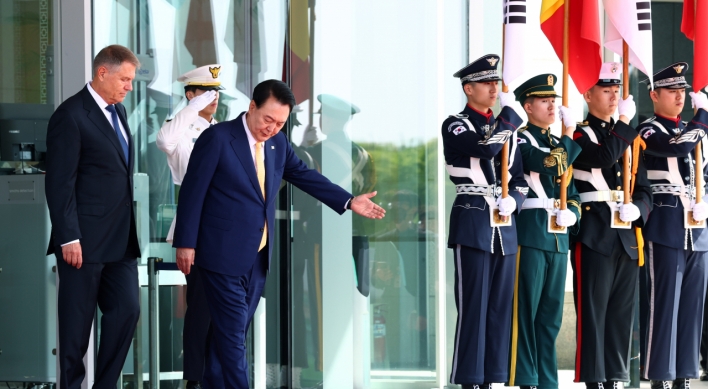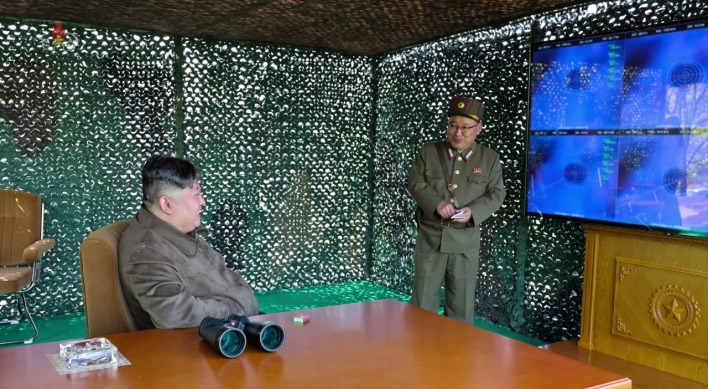
About 200 local and foreign experts gathered for a seminar in Seoul on Tuesday to discuss the developments and emerging challenges for Hallyu.
The seminar, titled “Taking Hallyu Beyond Asia: It’s Now About Class,” served to help diagnose the current status and outlook of Hallyu, as well as outline measures for a boost. The occasion brought together Korean, Chinese and Japanese Hallyu experts.
The forum was jointly organized by the foundation and Choi Koo-shik, a National Assembly member with the ruling Grand National Party.
A newly created “Korean Wave Index” was introduced at the seminar and the findings of an “anti-Hallyu” research project based on five Asian countries were presented. A study on the current status of the phenomenon in nine countries around the world was also unveiled.
The newly established index, which serves to gauge current Hallyu conditions abroad, was developed by Koh Jung-min, a professor at Hongik University and manager of the Korea Creativity Industry Research Center.
The geographical range for the Korea Wave Index covers Japan, China, Taiwan and Vietnam. Categories analyzed include movies, music, broadcasting programs and games. A related consumer index covering the number of movie viewers, number of album purchases, popularity ratings, internet downloads, recognition level, quality, image and loyalty are also considered for the index.
According to Lee Yoon-kyung, a researcher at the Korea Culture Tourism Research Center, anti-Hallyu sentiment has developed in five Asian countries that Korean pop culture had taken by storm between 2005 and 2009. Lee’s study showed that articles in major daily newspapers and leading online community sites in Japan, China, Thailand, Indonesia and Singapore revealed negative views toward the Korea Wave.
In Japanese news articles, the negative sentiment was suggested through a hostile tone on Korea-related issues, while Chinese newspapers tended to criticize the proliferation of Korean dramas and Korean companies entering the Chinese market, according to Yoon’s study.
While Indonesia did not have dislike articles, the country’s interest in Korea was found to be based on the phenomena of fandom, Korean celebrities and the culture of cosmetic surgery.
“Lee Yoon-kyung’s study of the major daily newspapers in the five Asian countries did not show extreme criticism or dislike for the Korea wave, but news stories in Japan, China, and Thailand voiced the need for restricting the expansion of the Korea Wave, and warned of the possibility of triggering a bigger issue if the wave is tied to another issue,” the Korea Foundation for International Culture Exchange highlighted.
As measures to invigorate the Korea Wave overseas, experts participating in the seminar recommended raising the quality of contents, as opposed to being preoccupied with the volume of traded contents, the export value, and commercial opportunities.
“This seminar has served as a wake up call, signaling that it is time for Korea to take a different approach and change its perception of the ways to raise global recognition of Korea,” said Park Jong-sup, manager of the planning and management division at the foundation. “We’ve learned that we need to expand our range of areas for cultural exchange and move away from being so focused on cultural products.”
Between 1997 and 2000, the keyword was “creating Hallyu,” with drama and music serving as the main drivers in China, Taiwan and Vietnam. In the second phase, which covered the early 2000s to mid 2000s, the growth drivers expanded to movies and games, while the wave spread to Japan and Southeast Asia.
The latest phase, marked by the second half of the 2000s, saw the entry of cartoons, character figures, Korean cuisine and Korean language. The wave reached out to countries in Central Asia, Africa and the United States.
By Yoo Soh-jung (sohjung@heraldcorp.com)


![[AtoZ into Korean mind] Humor in Korea: Navigating the line between what's funny and not](http://res.heraldm.com/phpwas/restmb_idxmake.php?idx=644&simg=/content/image/2024/04/22/20240422050642_0.jpg&u=)



![[Herald Interview] Why Toss invited hackers to penetrate its system](http://res.heraldm.com/phpwas/restmb_idxmake.php?idx=644&simg=/content/image/2024/04/22/20240422050569_0.jpg&u=20240422150649)

![[Graphic News] 77% of young Koreans still financially dependent](http://res.heraldm.com/phpwas/restmb_idxmake.php?idx=644&simg=/content/image/2024/04/22/20240422050762_0.gif&u=)





![[Exclusive] Korean military to ban iPhones over security issues](http://res.heraldm.com/phpwas/restmb_idxmake.php?idx=652&simg=/content/image/2024/04/23/20240423050599_0.jpg&u=)



